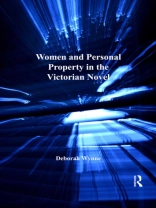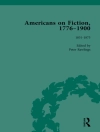How key changes to the married women”s property laws contributed to new ways of viewing women in society are revealed in Deborah Wynne”s study of literary representations of women and portable property during the period 1850 to 1900. While critical explorations of Victorian women”s connections to the material world have tended to focus on their relationships to commodity culture, Wynne argues that modern paradigms of consumerism cannot be applied across the board to the Victorian period. Until the passing of the 1882 Married Women”s Property Act, many women lacked full property rights; evidence suggests that, for women, objects often functioned not as disposable consumer products but as cherished personal property. Focusing particularly on representations of women and material culture in Charles Dickens, George Eliot, and Henry James, Wynne shows how novelists engaged with the vexed question of women”s relationships to property. Suggesting that many of the apparently insignificant items that ”clutter” the Victorian realist novel take on new meaning when viewed through the lens of women”s access to material culture and the vagaries of property law, her study opens up new possibilities for interpreting female characters in Victorian fiction and reveals the complex work of ”thing culture” in literary texts.
Deborah Wynne
Women and Personal Property in the Victorian Novel [EPUB ebook]
Women and Personal Property in the Victorian Novel [EPUB ebook]
Mua cuốn sách điện tử này và nhận thêm 1 cuốn MIỄN PHÍ!
định dạng EPUB ● Trang 192 ● ISBN 9781134772407 ● Nhà xuất bản Taylor and Francis ● Được phát hành 2016 ● Có thể tải xuống 3 lần ● Tiền tệ EUR ● TÔI 4850776 ● Sao chép bảo vệ Adobe DRM
Yêu cầu trình đọc ebook có khả năng DRM












